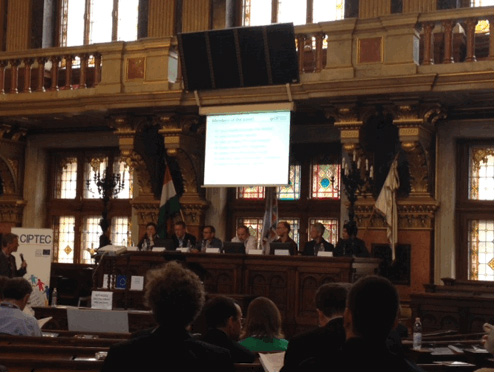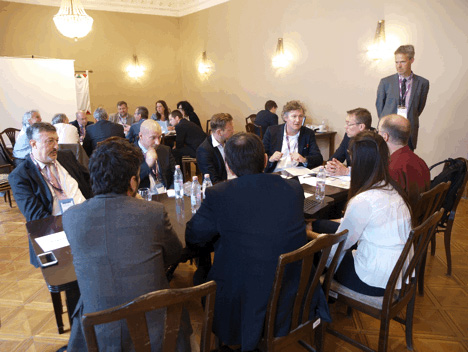This workshop presented the top 31 most promising innovations that can be implemented in public transport attracting more passengers. The main objective was to validate the findings and the workshop was successful in achieving this objective, but also in sharing and collecting information to improve public transport. Participants were not only presented with theory, but a lively discussion in smaller groups bridged the gap between theory and actual practice. As a result, participants were able to share their expertise and gained practical information ready to be implemented in their home city/region.
Prior to the workshop, a selection had been made from initially over 200 innovations in public transport, other transport and other businesses, and the top 31 most promising innovations were presented briefly, exemplified by cases. One of the selected innovations, Mobility as a Service (MaaS) was elaborated on by presenting the case of shared mobility.
International Transport Forum Secretary General, Mr. José Viegas, presented the results of a simulation study performed in the city of Lisbon to assess potential impacts of adopting shared mobility solutions in urban dimensions. It delivered impressive results on various levels, such as massive reduction of peak traffic volumes, lower CO2 emissions, equitable access to jobs and public services and released public space.
The validation results up until the workshop were presented to the participants. In April of 2016, public transport authorities and operators, but also non-public transport experts such as those in marketing were surveyed and interviewed regarding the potential of the innovations. The top three most promising and top three innovations that deviated the most from the project’s initial scoring were discussed in six smaller groups by using a SWOT analysis. It turned out to be a lively discussion; a good representation of stakeholders were eager to share their expertise and experience to ultimately improve public transport.
At the general meeting, the chair persons of the six groups briefly presented the most important conclusions of their groups to initiate a discussion with a select group of panel members that represented public transport operators, authorities and other experts.
All the information gathered prior to and at the workshop will be reported on, and included in the toolbox that will be developed later on in the CIPTEC project. In the toolbox, operators and authorities (or others) will be able to find the innovations that are most relevant to them in attracting more customers.

The panel members. From left to right: Ms. L. Delgado (Consorcio Regional de Transportes de Madrid), Mr. A. Vuorela (Helsinki Region Transport), Mr. M. Van Hagen (Dutch Railways), Mr. G. Spanos (Public Transport Organisation of Thessaloniki), Mr. S. Laine (Data Rangers), Mr. H. Arby (Ubigo), Mr. A. Kamminga (Flixbus)

Some of the six discussion groups in action
